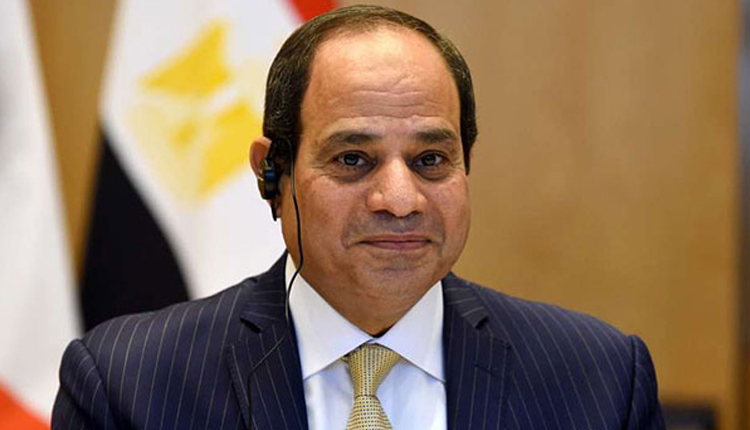Egypt debates bills that could see Sisi remain in office until 2034
Egypt’s parliament began debate Wednesday on constitutional amendments that would extend presidential terms from four to six years and could see current President Abdel Fattah al-Sisi remain in office until 2034.
The proposals would also grant Sisi more power over the judiciary and the military more control over the state. Egypt’s army played a pivotal role in the 2011 revolution that toppled Hosni Mubarak and in the 2013 coup against his successor Mohamed Morsy.
Supporters of the changes say they will bring stability to Egypt’s economy, which is struggling to recover from the political turmoil of recent years, along with bolstering security amid an ongoing deadly Islamist insurgency.
But opponents of the proposals described them as a further step toward authoritarianism.
The 26-page draft proposal of 22 constitutional amendments will need to go to committee then be voted on by the full parliament before a national referendum can take place, Egyptian state media Ahram Online reported.
The draft proposal, according to Ahram Online, argues that the amendments were “one of the demands of the 2013 revolution, which erupted to save the country from an unprecedented constitutional and political crisis.”
Currently the constitution allows for only two terms of four years each. If approved, the amendments would reset the clock for Sisi, whose second term ends in 2022, and allow him to run for two more terms.
“This crisis left the country severely divided, not to mention that it posed a grave threat to the nation’s internal stability,” the draft proposal says, according to Ahram Online. “There is no doubt that the proposed amendments come as a response to practical and legal needs which all obligate that some articles of the existing constitution be amended.”
But Amr Mousa, former Arab League Secretary General and chairman of the 2014 committee that drafted Egypt’s current constitution, warned that changing the constitution could have “undesirable consequences.”
“Egypt is in a state of anticipation and questioning due to the mystery surrounding the amendments made by a fifth of the parliament members on some parts of the constitution,” he tweeted. “It’s dangerous for anticipation and questioning to develop into a negative state across the country; this might have undesirable consequences”.
Former Egyptian presidential candidate and opposition leader Hamdeen Sabahi bemoaned the proposals, in a Facebook post early this month, as “a crime, and an attempt to tamper with the constitution and the state, destroy the foundation of the current societal balance, as well as disrupt the path toward building a modern secular democratic state based on the peaceful transfer of power, the separation of powers and a respect for the constitution and the law.”
Even if the amendments reach a national referendum, it’s unlikely to be free or fair, according to Timothy Kaldas, a non-resident fellow at the Tahrir Institute for Middle East Policy.
“Undoubtedly the ongoing campaign of repression of government critics and civil society is meant to deter anyone who would dare try to mobilize a campaign for a ‘no’ vote,” Kaldas told CNN.
“Unlike Sisi’s puppet challengers, the word ‘no’ may be his most formidable electoral opponent to date, and unlike the array of individuals who tried and were prevented to run against Sisi in his ‘reelection’ in 2018, the word ‘no’ cannot be imprisoned or otherwise intimidated from withdrawing.”
Sisi won both previous presidential elections in landslides, garnering more than 90% of the vote each time. During the 2018 election, all of the high-profile candidates dropped out of the race after facing intimidation, obstruction and, in one case, arrest. Sisi has previously said he has no intention of being Egypt’s president for life.
If the amendments are approved, Egyptian officials told Ahram Online that the constitutional referendum would likely take place before the beginning of the fasting month of Ramadan in May.
Source: CNN


